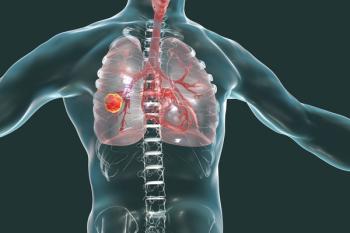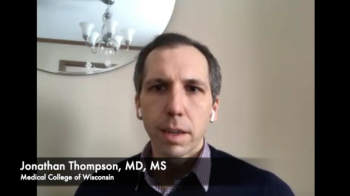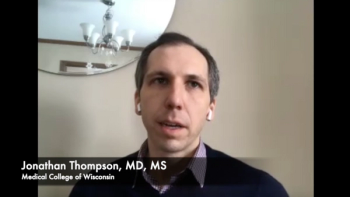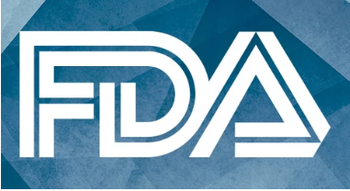
Data from the Journal of Clinical Oncology found that entrectinib resulted in high-level clinical benefit for patients with ROS1 fusion–positive non–small cell lung cancer, regardless of CNS metastases status.

Your AI-Trained Oncology Knowledge Connection!



Data from the Journal of Clinical Oncology found that entrectinib resulted in high-level clinical benefit for patients with ROS1 fusion–positive non–small cell lung cancer, regardless of CNS metastases status.

Data from a study in the Netherlands found substantial variation in biomarker testing among 102 patients with advanced non–small cell lung cancer.

An investigational KRAS G12C inhibitor for treating patients with non–small cell lung cancer demonstrates high response rates in pretreated disease and infers viability of this therapy approach.

Results of the phase 3 IMpower010 trial have demonstrated that adjuvant atezolizumab for patients with stage IB to IIIA non–small cell lung cancer leads to increased disease-free survival versus best supportive care for patients with high PD-L1.

CancerNetwork® sat down with Conor E. Steuer, MD, to discuss a recently published prospective study which found a high rate of smoking reduction and cessation in patients with non–small cell lung cancer.

Based on promising responses seen across several clinical trials of poziotinib in patients with non–small cell lung cancer and exon 20 mutations in HER2, the FDA granted the therapy fast track designation.

Novartis’ investigational interleukin-1β inhibitor canakinumab plus docetaxel failed to show a survival benefit in patients with previously treated locally advanced or metastatic non–small cell lung cancer, but other trials examining its efficacy remain ongoing.

The agency approved the supplemental new drug application to include the first-line treatment of adult patients with metastatic anaplastic lymphoma kinase-positive non-small cell lung cancer.

Data published in The Lancet found that the PD-L1 inhibitor cemiplimab improved overall and progression-free survival for patients with advanced non–small cell lung cancer with PD-L1 of at least 50%.

The KEYNOTE-010 study evaluated the use of either pembrolizumab or docetaxel in patients with previously treated, PD-L1–positive advanced non–small cell lung cancer.

The chief of Gastrointestinal Radiation Oncology at the Rutgers Cancer Institute of New Jersey discussed how she hopes the results of the KEYNOTE-799 study will impact testing going forward.

According to investigators on the CheckMate 9LA trial, these data support the use of nivolumab plus ipilimumab and 2 cycles of chemotherapy as a new first-line treatment for patients with advanced non–small cell lung cancer, regardless of PD-L1 expression or histology.

The chief of Gastrointestinal Radiation Oncology at the Rutgers Cancer Institute of New Jersey discussed the adverse events associated with the use of pembrolizumab plus concurrent chemoradiation therapy in patients with unresectable, locally advanced, stage III non–small cell lung cancer.

The approval of cemiplimab in non–small cell lung cancer was supported by results from the phase 3 EMPOWER-Lung 1 trial that investigated its use as monotherapy in the first-line setting compared with platinum-doublet chemotherapy in patients with locally advanced or metastatic disease whose tumor cells expressed PD-L1.

The chief of Gastrointestinal Radiation Oncology at the Rutgers Cancer Institute of New Jersey spoke about the possible implications of the KEYNOTE-799 study findings.

The chief of Gastrointestinal Radiation Oncology at the Rutgers Cancer Institute of New Jersey discussed updated results from the study of pembrolizumab plus concurrent chemoradiation therapy in patients with unresectable, locally advanced, stage III non–small cell lung cancer.

Amgen announced that their new drug application for sotorasib was granted priority review by the FDA to treat patients with KRAS G12C–mutated locally advanced or metastatic non–small cell lung cancer.

Patients with EGFR-positive non–small cell lung cancer who received treatment with osimertinib following surgery versus placebo experienced no clinically meaningful differences in health-related quality of life, according to results of a pivotal phase 3 trial.

The trial demonstrated that combination treatment with bemcentinib and pembrolizumab was well tolerated and clinically active in patients with checkpoint inhibitor (CPI)–naïve and CPI–refractory composite AXL (cAXL)–positive non–small cell lung cancer.

The KEYNOTE-799 study is evaluating pembrolizumab plus concurrent chemoradiation therapy in patients with unresectable, locally advanced, stage III non–small cell lung cancer.

The ongoing phase 2 BGBC008 trial demonstrated that combination treatment with bemcentinib and pembrolizumab was well tolerated and clinically active in patients with checkpoint inhibitor (CPI)–naïve and CPI-refractory composite AXL-positive non–small cell lung cancer.

Data on patients with EGFR-mutant non–small cell lung cancer and brain metastases showed the ability of [11C]osimertinib to reduce metastatic volume and achieve consistent brain penetration.

Patritumab deruxtecan, a HER3-targeted antibody-drug conjugate, appeared to be effective at the recommended expansion dose of 5.6 mg/kg in patients with metastatic or unresectable EGFR-mutant non–small cell lung cancer based on clinically meaningful antitumor activity and a manageable safety profile.

Patients with extensive-stage small cell lung cancer show greater response when atezolizumab is added to carboplatin and etoposide versus placebo in the IMpower133 trial.

Based on results of the VISION study, the FDA has granted accelerated approval to tepotinib for MET exon 14 skipping altered metastatic non–small cell lung cancer.